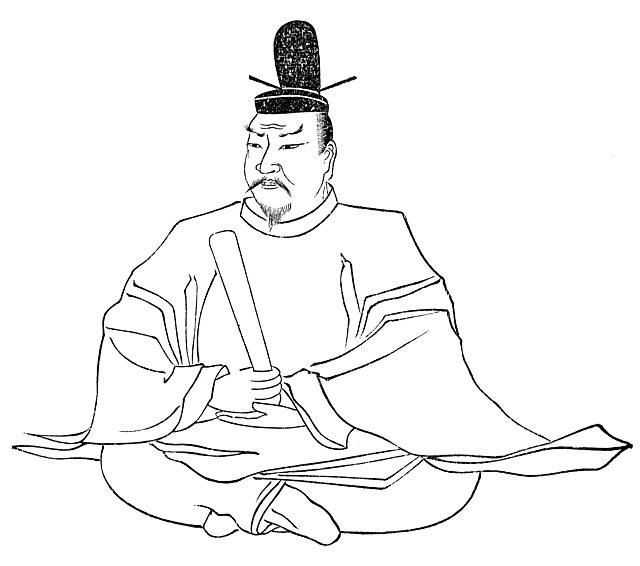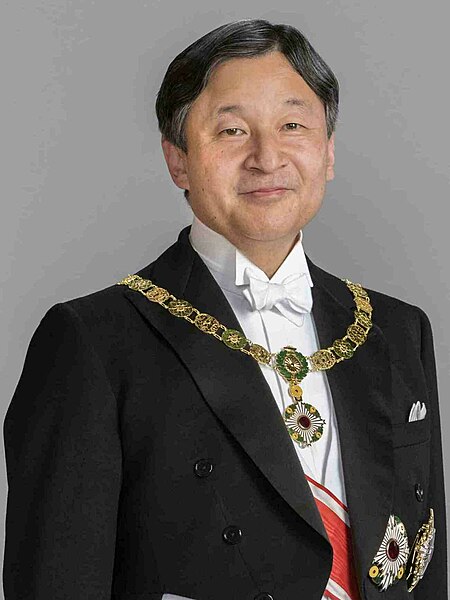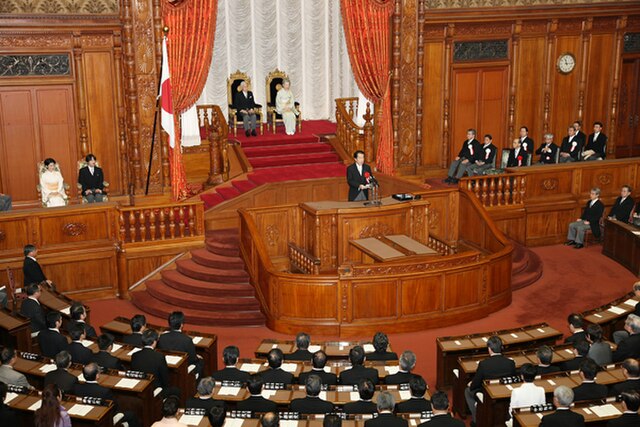Emperor Tenmu was the 40th Emperor of Japan, according to the traditional order of succession. He reigned from 673 until his death in 686.
Emperor Tenmu
Memorial Shinto shrine and mausoleum honoring Emperor Tenmu
The Nihon Shoki entry of April 15, 683 CE (Tenmu 12th year), mandates the use of copper coins instead of silver, suggesting that Japanese currency predates his reign. Excerpt of the 11th century edition.
Early Japanese currency: Fuhonsen coins (富本銭), found in Asukaike (飛鳥池), thought to have been minted during the reign of Emperor Tenmu, end of 7th century, copper and antimony. Currency Museum of the Bank of Japan.
The emperor of Japan or Tennō , literally "ruler from heaven" or "heavenly sovereign", is the hereditary monarch and head of state of Japan. The emperor is defined by the Constitution of Japan as the symbol of the Japanese state and the unity of the Japanese people, his position deriving from "the will of the people with whom resides sovereign power". The Imperial Household Law governs the line of imperial succession. Pursuant to his constitutional role as a national symbol, and in accordance with rulings by the Supreme Court of Japan, the emperor is personally immune from prosecution. By virtue of his position as the head of the Imperial House, the emperor is also recognized as the head of the Shinto religion, which holds him to be the direct descendant of the sun goddess Amaterasu. According to tradition, the office of emperor was created in the 7th century BC, but the first historically verifiable emperors appear around the 5th or 6th centuries AD.
Emperor of Japan
Emperor Akihito and Empress Michiko seated in the Chamber of the House of Councillors of the National Diet, with members of the Imperial Family, the Cabinet, and Prime Minister Naoto Kan giving the government's speech in front of the assembled members of parliament (2010).
Utakai Hajime poetry competition, chaired by Emperor Shōwa and Empress Kōjun (1950).
The first arrival of Emperor Meiji to Edo (1868)








